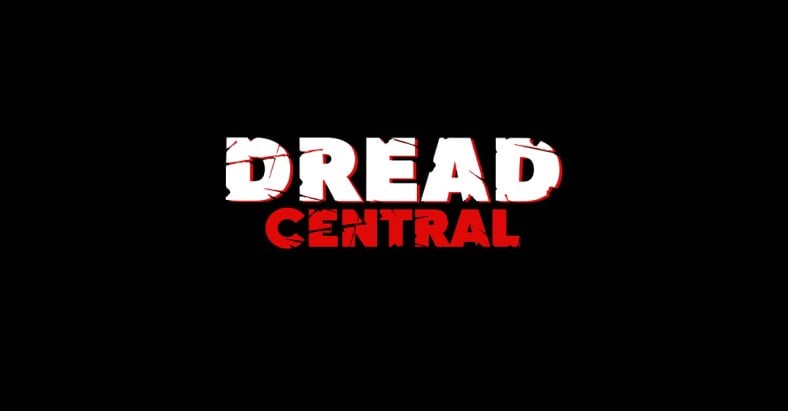Nestor Carbonell and Carlton Cuse Talk Bates Motel’s End Game and Lots More!

Just three episodes are left in this season of “Bates Motel” so when we got word of a recent conference call with series co-creator Carlton Cuse and co-star Nestor Carbonell (who directed this past Monday night’s episode), of course we jumped at the chance to hear their thoughts as Season 4 winds down.
Read on to see what they had to say about the series’ upcoming fifth and final season, Norma/Norman’s separation, Norma/Romero’s romance, the inevitable Norman/Romero confrontation, Carbonell’s experiences directing, and even Freddie Highmore’s talents as a writer for the upcoming Episode 4.08, “Unfaithful.”
Q: Carlton, as far as the five-season plan you’ve mentioned previously, has that altered at all dramatically based on what you’ve seen the fans embrace about the show? Or is it the same thing that you set out with from Season 1, the path that you’re taking to get to that finale in Season 5?
Carlton Cruse: I think… there are some changes that occurred… and in certain ways it’s been enhanced by what’s happened with the actors… we discovered, for instance, that there was a really nice chemistry between Dylan and Emma’s character, and that really pushed us towards engaging those two romantically, which was something that wasn’t planned from the very beginning. And in terms of Norma [and] Romero, that was something we really thought about from the very beginning, but what we didn’t anticipate was the incredible chemistry that existed between Nestor and Vera [Farmiga]. And so that storyline kind of was amplified, and… it became so much more heated up by the fact that the two actors are so amazing and so kind of connected. And so it just feels so real and believable… it kind of is a level of combustion that we didn’t expect.

Q: Nestor, we obviously know why Norma tries to protect Norman, but why do you think that Romero feels the need to? Is it simply because he cares so much for Norma? Or is there something deeper in there?
Nestor Carbonell: My take on it is that he feels a certain kinship with her… they both have a sordid history. They’ve had a tough upbringing… both of them have had a dark, not equally dark, but there were both very dark pasts that they’ve had to battle. And so they have that in common, but more than that… [there’s] the way they’ve dealt with it. They’re both strong and assertive personalities that have had to fight for everything. And I think Romero sees his counterpart in Norma in that respect. She’s a woman who’s come to this town and completely bucked convention in town and gone against all of the things that you’re supposed to, the Council… you know, just the typical ways you’re meant to go about doing things in this kooky town of White Pine Bay. And I think Romero loves that in her and has certainly warmed to her. His struggle with her is that she’s able to trust him, and that’s [been] a struggle with him for three seasons up until this season, where I think he finally feels… that he’s finally broken through. So that’s my take on it, but I want to hear Carlton’s thoughts.
Carlton Cuse: Yes, I think that… there’s a kind of deep level of empathy in Sheriff Romero. And I think he feels that he has a grasp of sorts of a kind of understanding of people, and…. as a result, it has kind of given him license to set his own morality and draw his own line in the sand. And I think that his deep level of empathy for Norma is one in which he really understands how important Norman is to her. And so therefore… because he really deeply loves this woman, he wants to help support Norman as well. So I think it’s everything that Nestor said, and then I would just add that it’s really sort of a deep reading of Norma that also kind of motivates him to be her ally here.
Q: Carlton, I really feel like separating Norma and Norman this season has propelled the story and the characters forward. Would you speak a little bit about how that separation has allowed Norma to evolve and change?
Carlton Cuse: You know, for [co-creator] Kerry [Ehrin] and I, we felt like this was a very important story moment… There were a lot of things that were serviced; at the same time we wanted Norma to kind of confront this idea that she’d never actually gotten any professional help for her kid, despite a lot of sign posts that he… needed psychological help. And so the fact that she does that was important. And also, we wanted to sort of hold out this hope that Norman being in this place where he’s getting mental help is possibly a really optimistic event for him. It’s also really kind of untethering Norma from Norman and gives us an opportunity to explore the character in a different way. She’s suddenly freed from the 24/7 obligations of her kid, and this really allowed her relationship with Romero to flourish. And we want to in a way give her the sort of thing she’d always wanted. You know, she’s a character who her whole life has wanted to find some pure manifestation of love. And she’s instead gotten involved with the wrong guys and been the victim of a lot of horrible circumstances. And now for the first time everything seems to be going right. She’s with a guy who loves her. Who is really, at his core…a very decent guy with his own kind of strong sense of morality… someone who fiercely cares about her, and this relationship has really blossomed… and yet, you have Norman, who’s in a mental institution and is kind of a ticking time bomb. And it just felt narratively that it was a great opportunity to put the characters in some different circumstances that allowed us to push some of our storytelling in new directions.

Q: Nestor, you directed the most recent episode; coming back behind the camera for this season, was there anything that you learned from directing that third season episode?
Nestor Carbonell: Yes, [I’m learning] continually. Due to Carlton, I got this incredible opportunity. This is something that Vera had suggested I do. In the middle of Season 2 she said, “You should try directing. You really should.” And when I broached the subject with Carlton, he said, “Yes, absolutely. I think that would be a great idea.” And I suggested maybe shadowing, and then lo and behold, he said, “Well, if someone falls out, would you be willing to step in?” I said, “Sure.” And sure enough, someone had to fall out last year, and then I had the daunting prospect of actually having to do it. Having not gone to film school, the great advantage I have is, outside of amazing scripts to work with and a phenomenal cast, an extraordinary crew that helped me a lot last year. And I learned so much from that particular episode from Tucker Gates, our producing director, who really established the look of the show. The dolly tracks, mostly, the nothing longer than a 40-millimeter lens… pretty much it’s a single-camera show so that the whole world is mostly in focus as you’re shooting it. So I wanted to certainly pay respects to what Tucker was doing. I got enormous help from the crew. And that particular episode last year was fairly stunt-heavy so I learned a whole other thing on top of, you know, just getting behind the camera. So yes, I took as much of that as I could to this episode, which was… totally a very different episode then the one I got to direct last year. Which is another bonus for me getting to do something completely different as a director. The Head Operator (Mike Rensch) is enormously creative, and while I might suggest something, he’ll come up with something on the day too. So quite often we will freestyle. I learned and continue to learn so much from working behind the camera. And Carlton in this particular episode suggested that I take a look at one movie in particular, an incredible film, Son of Saul, as a way to potentially shoot a certain sequence…. And that was enormously helpful. You know, borrowing from someone’s style and someone’s point of view. And I learned a tremendous amount just from that whole sequence alone.
Q: Nestor, what’s been one of your favorite parts of portraying Sheriff Romero this season?
Nestor Carbonell: Well, this particular season what’s been a lot of fun is… you know, Carlton and I talked about this stuff in the beginning, the arc of the character. That he wasn’t necessarily particularly sympathetic when we first met him. He was a bit of a bulldog. But knowing that eventually he would wind up with Norma, it was nice to be able to track as an actor that trajectory so that you can play as hard as you want initially, knowing full well that eventually he will soften. His guard will come down. And knowing that it was because of Norma that he was going to soften made that choice that much more interesting because of my dynamic with Norma and with Vera. So with this particular season what’s been rewarding is finding the ways for him to slowly break that guard down. And what Carlton and Kerry and the writers came up so cleverly was how do you do that after three seasons of a pretty hard-nosed guy? The only time we’ve seen Romero sort of drop his guard was when he’d been drinking. So Kerry, Carlton, and the writers cleverly had me go out on dates and have a few cocktails and suggested Norma drink as a way to loosening up. And that sort of let the walls down initially. And I love what Carlton and Kerry did in terms of bridging or having these two get together. So it was a product of a marriage first, of a false marriage, that turns into passion, that turns into liking each other. And then eventually it turns it into declaring… a love for each other. So it’s sort of a backwards way to enter a relationship, but I think it’s sort of in keeping with what these two are.
Q: Norman is obviously becoming more and more unstable this season. Now that Romero has married his beloved mother, do you think it’s sort of inevitable that there’s an altercation coming down the line between the two of them?
Carlton Cuse: That is, I think, the very definition of a leading question, no? [laughter] But yes, we clearly constructed this narrative that these two characters are on a collision course. How that actually plays out? We obviously don’t want to spoil what’s to come… but yes, the idea that while Norman’s away, Norma will play is obviously a very loaded scenario. And… the degree [to] which he is willing to accept Romero into his life and to accept the fact that Romero and his mother are romantically involved is… a question that just looms large across the show and will definitely be addressed in coming episodes.
Q: Obviously, those that have seen the movie know what’s apparently coming for Norma, which is even harder for us to deal with now that we’ve gotten to know her. Do you think the “Bates Motel” ending could be completely different? Do you think of it as a separate entity from the film?
Carlton Cuse: Kerry and I certainly don’t think it would be rewarding to deliver up to the audience the exact same ending of our show that you saw in the movie. However, the tension of all great tragedies is sort of this idea of you’re hoping against hope that characters don’t meet their inevitable fate. That’s the essential tension of tragedies. So if you watch Titanic, you know the ship is going to sink. But you’re hoping, “Oh, man, did Leo make it?” And we want our audience to feel that same tension. Are Norma and Norman going to make it? Is Norma going to make it? What’s going to happen? So we like to think of the idea that we’re sort of crisscrossing with the mythology of the original movie. But it is certainly not our desire or obligation to exactly align our storytelling with what goes on in the movie. And the tension of what you should or shouldn’t expect is something that’s we’re very aware of. We want you to feel that tension, but I certainly don’t want to tell you how we’re planning to… pay it off [or] play it out.

Q: With next year being the final season for this show, how does it feel to see the end coming into view? Are you already sort of getting nostalgic even though you’re still in the middle of it?
Carlton Cuse: It’s this really mixed thing because it’s absolutely best for the storytelling. I mean, this is a story that just is so much better [with a] closed ending, knowing that there is some kind of finality to it. And the tension of that finality, what that finality’s actually going to mean, is what really helps engage the audience. But on a personal level, it’s an absolutely blessed experience… I’ve never worked with a cast that is more connected, more aligned, more professional. Everyone is so lovely and talented, and the work experience is so satisfying and rewarding for everyone involved that it’s really painful for that to come to an end, you know? This assemblage of actors is so special and rare. The way everyone treats each other and the respect that everyone has for everyone else and from the process is so high… [it] is really a serious bummer that that’s ending. You know, that’s not the case on many TV shows or films or anything, where you have this level of connectedness… so that part’s going to be sad… whenever you make a show, you have a fictional show, but it leads to the creation of this sort of real world family behind the scenes that actually makes the show. And the fact that that’s going to be coming to an end in the near future is sad.
Nestor Carbonell: Yes, I completely agree, and I’ve told you this too, Carlton, that I hold this up in the same way as I held “Lost.” This has been one of the most special experiences I’ve ever had creatively and then personally too. Like you said, the people are extraordinary… you and Kerry and the incredible crew and the cast. It’s the old cliché thing, which is true: It’s like a family, and… our Line Producer put together and amassed the most incredibly talented and sweetest crew that you could imagine. We spent a lot… many hours together. And so it’s going to be extraordinarily hard to see the show end. For some of us, we don’t know when it ends. So you’ll have to find out as a viewer, for some, when that end comes. But so far it’s has been, like I said, one of the best experiences that I have ever had professionally.
Q: An upcoming episode that we’re really looking forward to is one that Freddie Highmore wrote. What can you tell us about that?
Carlton Cuse: Freddie is a multi-talented guy who is different than a lot of actors in many respects. I mean, he has a degree from Cambridge University. He’s fluent in Spanish and Arabic. I honestly think he’s with MI6, but that’s something he will neither confirm nor deny. He, like Nestor, has the potential to be a significant artist [beyond] acting. I think for Freddie it was a great experience to come and sit in the writer’s room and work with our incredibly talented group of writers on the construction of the story. What was really interesting – and it was a first for me – was to see a script come together from the perspective of someone who… inhabits one of the main characters in the show. So his perspective on Norman and then writing of the script was something that Kerry and I were really taken with because we’re the progenitors of that character. But he’s the person who’s playing that character and inhabiting it. And it was just interesting to see the ways in which he would… react in a certain circumstance versus what we would imagine the character would do… And kind of in a collaborative way found our way towards using the best of both. Using our ideas about how the character would be in combination with insights that Freddie brings to the table playing Norman day in and day out. So I think it was a real learning experience for Freddie… And he did a great job… And I think that you, Nestor, turned out to be a phenomenal director. And I think he’ll have a healthy career as a director alongside his acting career. And I think Freddie has definitely shown the ability to do more than act himself.
Nestor Carbonell: Thank you, Carlton; that’s very kind. And again, I would not be in this position if it were not for you. I mean, you literally made this happen, and I can’t thank you enough for that. It’s been extraordinary. And I love that you’ve fostered that and you’ve helped Freddie through this process, too, as a writer. And I know he will have a chance to go beyond that and direct next year. And yes, he was extraordinary. It was great to work with him and great to see him even in pre-production. I would sort of bump into him when he was prepping for the episode. He would ride on the bus with scouts and everything. He really wanted to learn every aspect of the process. So I love that. And I loved just giving him a hard time when we’re doing scenes… At one point we’re doing a scene and I said, “These words are just not sayable. I mean, you just don’t say these things.” So that went over really well. I said, “Who wrote this, man?” It was a lot of fun. Just to see his level of excitement and how invested he was in every aspect of it was great. He’s an unusually gifted individual and an incredibly warm person. So it was just amazing to see him succeed on this level as well.
“Bates Motel” Episode 4.08 – “Unfaithful” (airs 5/2/16)
Norma (Vera Farmiga) finds herself torn between Romero (Nestor Carbonell) and Norman (Freddie Highmore); a holiday outing makes Norman realize how much everyone else has changed in his absence.

Categorized:News

